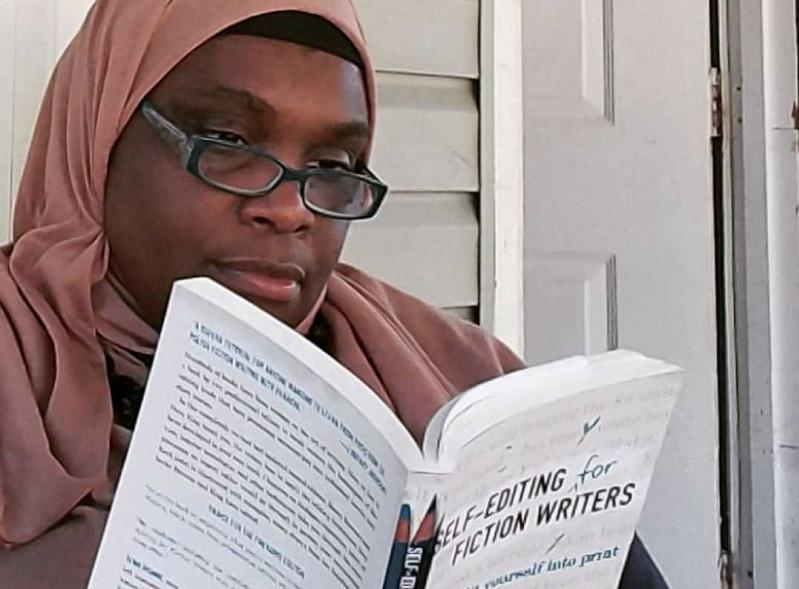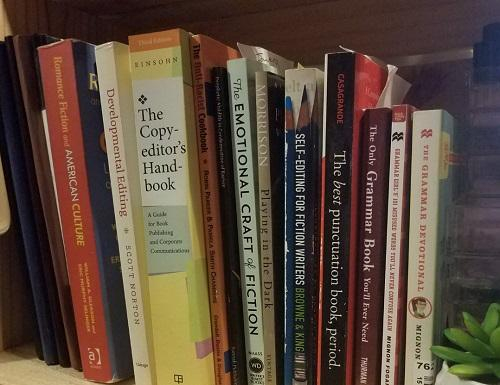Too Much Digital in Your Day? Here's How to Build Foundations for a Low-Tech Life
Lifestyle
|
Jan 17, 2020
|
6 MIN READ

Editorial note: This month we are running a series focusing on foundations – how we can build solid foundations across all areas of our life to help ground us so that we can embrace all that our deen (religion) and dunya (the world) have to offer us. We will be covering foundations of marriage, faith, your morning routine, relationships, mental health/self care, technology, hijab and other areas. Each focus could really be a book, but we will try and break it down into the most useful, attainable and basic things we can do to build critical foundations in our lives.
By Layla Abullah-Poulos
When it comes to modern technology, people my age (Generation X and proud of it) and older are considered digital immigrants. While we may interact with technology with varying levels of proficiency, it has not been integral to our lives from birth. Unlike younger digital natives, who grew up surrounded by technology, we learned how to navigate our world without it, which is important when there may be a need to “unplug.”
In a previous post, I addressed the important role of devices and apps play in my ability to write, create content and manage my time. They help me engage in a range of work that feeds my soul as a writer and educator, but there are downsides. I started wearing reading glasses in grad school. My ophthalmologist told me it was digital eye strain and that I needed to spend less time looking at screens. I looked at him like he lost his mind. He laughed and recommended reading glasses.

Layla Abdullah-Poulos keeping it low-tech while reading from a book.
Long periods of time at my desk pouring over my laptop and digital devices have wreaked havoc on my neck, back and shoulders, and let’s not talk about the weight gain. Prolonged screen time has costs.
I also experience emotional strains due to my dependency on my digital tools. Trying to stay “woke” can devastate one’s optimism. As we scroll through news searches and social media timelines, we are inundated with all types of horrifying news. Then there are the Twitter beefs and arguments in the comment sections. Social media does give us access to new and unattainable information through mainstream media, but it can also negatively impact our mental health, making it necessary to assess when it’s time to put them to sleep.
It is not always easy to shut down the technology in our lives, but it is integral to maintain the balance many of us seek. Muslims are people of the middle path. Allah says in the Quran:
"And thus have We willed you to be a community of the middle way … " Suratul Baqarah 2:143
There can be too much of a good thing. As much as I benefit from technology, I have had to learn to move away from it and benefit from things beyond screens and notifications. Setting in place foundations for a low-tech life are crucial to maintaining good physical, mental and emotional long-term health. The following three foundations are how I try and dial it back from technology, which hopefully can be beneficial for you as well.
Writing by Hand and OG Notebooks
One reason why I gravitated to the keyboard is because my handwriting can be so horrible. I can’t imagine how the old-school writers and authors wrote entire manuscripts by hand, in ink no less. Much respect. A lot of my writing is via my laptop or Bluetooth keyboard attached to my tablet, but there are still times when I need to write things down.
Even if you’re not a writer per se, many of us find ourselves jotting down notes and communicating digitally. But writing by hand has a lot of benefits, including enhancing memorization. We have access to tons of information. We can’t remember it all, so writing it down helps retain the most pertinent. “Paper note takers’ brains are working to digest, summarize, and capture the heart of the information. This, in turn, promotes understanding and retention (Frisch).” Basically, we will remember the things we take the time and energy to write down better.

Image source: Helloquence on Unsplash
Consider how many schools have shifted to digital and online curriculum. Integrated technologies in education do have benefits for sure. It extends the ability for teachers to connect with students and broadens access to materials. However, technology cannot eliminate the advantages of old-school writing by hand. For many students, handwriting and printed materials can facilitate better learning. As a home school teacher, I use online services and ebooks to enhance the educational experiences of my children, remaining aware of the importance of maintaining solid low-tech foundations like simply writing notes, highlighting text and writing drafts for creative and research papers by hand.
In addition to book plot outlines I have in a Word document, I also keep a work-in-progress notebook where I write down character names, scenes, vocabulary and plot changes that come to mind. I used to look side eye at authors with notebooks but have come to value how writing by hand helps with organizing and remembering the intricacies of a story.
Many people also benefit from journaling their feelings and life’s experiences. “ When you’re feeling sad or stressed, sometimes materializing your thoughts by writing them out can be an amazing therapy (Silver). My Facebook followers are familiar with my “Laylarants,” where I share my perspective with the world, but that is not the same or as cathartic as writing down my pains, sorrows and joys across the blue lines of a notebook.
Picking up an Actual Book
I love ebooks. My Kindle is full of them. With so many titles just a click away, I am able to read at a capacity I couldn’t before. That doesn’t mean I have given up on print material. I still like to tilt a book under my nose, give it a good sniff and caress the cover before opening it.
The Poulos home is loaded with books. Each family member has their own collection. Even my digital native children keep books in their rooms. We also make frequent trips to our local library, bringing home borrowed titles with glee. It is fulfilling to watch everyone stack up their books next to them and start reading. If you’re not a library frequenter already (for yourself or with your kids if you have kids), start instilling that habit.

Our interactions with printed literature can be different than with words on a screen. While I won’t be one of those people touting about the superiority of printed books, I appreciate the need for them. I keep a small library of books about writing as a craft on my desk. They are full of sticky note markers, underlining and notes for future reference. I can probably get the same information on the internet, but reading it on pages helps ingrain the advice and gets me away from Google.
I also prefer to read the Quran in print. It’s great that there are apps with the entire Quran to read in a pinch, but there is something special about gliding my fingertips under the Arabic text that helps ground me. It calms me and encourages me to focus on what I am reading. There is something about setting aside some time, sitting down and holding a physical Quran in your hands to read. If you’re used to reading the Quran digitally, try going low-tech occasionally. It can be quite comforting.
Taking a book in hand is a great way to decompress from a seemingly endless bombardment of technological data.
Start Playing Board Games
I bet no one saw that coming. I kid you not! Board games are awesome. They make a family turn everything off and face each other. Parents and children get to work as teams, focusing on accomplishing an objective, whether that be getting to the end of the board or whipping the pants off the other team.
We have a revolving collection of board games, ironically in a credenza under our television. Papa Bear (my husband) gathers as many of his cubs as possible and drags me from my desk. It is always a great time, even when a heated game ends in a flipped board. Instead of sitting in a room with everyone in front of their own screen, we have to deal with all of our different personalities, remembering how dynamic our family is.
(Check out this annual review of board games from Washington Post religion writer Sarah Pulliam Bailey and her husband Jason Bailey if you’re on the lookout for something new to play with friends and family!)
Attaining spiritual, personal and familial harmony requires that we detach ourselves from technology. It is probably not necessary for one to go off the grid, but we all need a little relief from our digital lives.
Subscribe to be the first to know about new product releases, styling ideas and more.
What products are you interested in?

